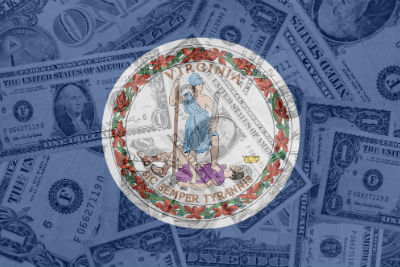
Gov. Ralph Northam is proposing a slew of tax cuts in next year’s state budget, trying to get ahead of Gov.-elect Youngkin by targeting the tax cuts at working folks, probably correctly assuming that Republicans will want the windfall to go to the already wealthy.
“When Virginia cuts taxes next year, it should be done in a way that benefits working people,” Northam said. “Many professionals made it through the pandemic fine, as their work simply moved online. But workers haven’t been so lucky when their jobs require close contact with other people. Some jobs simply can’t move online—restaurant workers, early childhood educators, home care attendants, and others—and we all depend on the people who do this work. Virginia can help working people by eliminating the state grocery tax, providing one-time rebates, and giving a tax break to people who are working.”
Northam is proposing four changes to tax policy:
Eliminating the state sales tax on groceries. Northam first proposed eliminating this regressive tax on low-income individuals when he ran for governor in 2017. If he hadn’t waited until now to include it in the budget, maybe there’s no Youngkin. Anyway. The state grocery tax is 1.5 percent. Most states do not tax groceries. This proposal does not affect local revenues.
Providing an income tax cut for working families. Northam proposed to make up to 15 percent of the federal earned income tax credit refundable for eligible families, which will give a tax break to working families who need it most. The EITC reduces the amount that low- and middle-income working people owe in taxes. Making it “refundable” means people will get a refund from the state if they are working but earning income below a certain level. The amount depends on income level, marital status, and family size. This program was started at the national level by former President Richard Nixon, a Republican at the time, but no doubt current-day Republicans would think he’s a RINO based on this. The governor proposed a similar plan in 2019.
Offering one-time ‘economic growth rebates.’ The governor is proposing one-time tax rebates to everyone who files state income taxes in Virginia—$250 for individuals and $500 for married couples. Low- and middle-income working people will benefit from this the most. Govrnor Northam and the legislature last offered tax rebates in 2019, providing $110 for individual filers and $220 for married couples.
Ending ‘accelerated sales tax’ payments for retailers. When you pay sales tax at a store or online, the retailer collects it for the state, and then forwards the money along to the Commonwealth. But when the economy collapsed in 2008, the state began requiring many retailers to pre-pay these tax payments early—before they had even collected the revenue. This placed a burden on retailers, causing them to dip into their own pockets. Northam is proposing to end this system.
Together, these plans are expected to reduce state revenues a total of $2.1 billion. Most of this amount is a one-time reduction for the state’s General Fund, and $419 million is an ongoing obligation. All ongoing tax cuts will directly benefit working people through changes to the EITC and elimination of the regressive state grocery tax.
The governor said his budget proposal also will put $1.7 billion into the Revenue Stabilization Fund, set aside $1 billion for the Virginia Retirement System, and allocate $2.8 billion for capital projects in state government and higher education buildings.
“Virginia is able to take these steps now because our sound fiscal leadership has shaped a booming economy,” said Secretary of Finance Joe Flores. “These steps are tools to make sure that working people share in the prosperity.”
“Virginia has been named the best state for business for three years running and we have a remarkably strong economy, but not everyone is benefitting equally,” said Del. Lamont Bagby, chair of the Legislative Black Caucus. “This tax plan focuses on Virginians who need help and who have largely not benefited from our strong economy. This is the right way to help working people and provide equity in our tax policy.”










